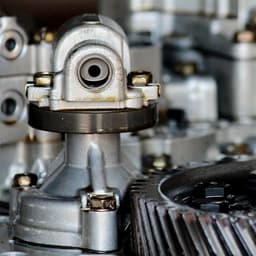Used Car Checklist
Table of Contents
Know your needs
Engine.
Fuel
Style.
Support
Know your wants
Research your car
Be prepared
Window Shop
Prioritize
Where to buy
Research dealerships
Internet purchases
Private sellers
Auctions
Absolute musts
Awareness of lemon laws
CarFax report
Help
Mechanical inspection
Take your time
Warranty
Beware
Double-talking salespeople
Emotional attachment
Time constraints
Financing
Dealership
Other lenders
Private
Cash
Shop around
Download or Print this Used Car Checklist
Get a printable version of this checklist in your preferred format: PDF, Word, Excel, or print directly from your browser.
Presented by:
Taylor Peterson

Stats
Views
76
Views: 76
Uses
2
Uses: 2
Tasks
32
Tasks: 32
Details
Checklists for buying used cars are an extremely useful tool, especially to prevent being taken advantage of by car salesmen. Safety is a big deal though, when it comes to buying a used car. When taken care of properly by previous owners, used cars are beautiful things to own. Used car checklists are created to help buyers from getting stuck with something that they can't get rid of. There has been far too many buyers that have been stuck with a lemon, or a bad car. Using a checklist to go over different systems will prevent a lemon from going back out on the road. Creating the checklist is not hard, with some thought and help from a good mechanic. Start out by listing the things that you want in a car. Talk to a mechanic about what to look for when observing the car. Using the mechanic's comments, start to build a checklist. Checklist of things to look for to avoid getting a lemon:
Tips
Compile a checklist of basic car systems. Electrical, heating and air, tires and brakes; these are a few good examples to start out with. Once you have all of the basic systems listed, know what to look for when checking out the vehicle. Do remember to include the research you've done on dealerships and finances on your checklist. If you have checked out and considered Internet purchases, be sure to have a separate checklist for each of those cars. Mechanical inspections are an absolute must by an outside mechanic, not just the dealer's mechanic. Finally, a CarFax report, or something similar, to show you proof of any previous accidents with previous owners is also a must.
Who it's for
This Used Car Checklist is for anyone who wants a simple, practical way to get things done without missing steps.
- Avoid forgetting - keep all your Used Car essentials in one place (external memory)
- Save time - start from a proven Used Car structure instead of a blank page
- Stay on track - track progress, come back later, and keep momentum
- Coordinate with others - share the list and divide responsibilities
- Learn the process - follow the steps in a sensible order, even if it's your first time
How to use it
How to use this Used Car Checklist
- Save Used Car Checklist to your free Checklist account so your progress is saved and synced across devices.
- Customize it in the app: remove anything that does not apply, then add your own details for Used Car (dates, sizes, addresses, notes).
- If others are involved, invite them to collaborate and divide responsibilities.
- Work through the list: check items off as you go, and set reminders for time-sensitive steps.
